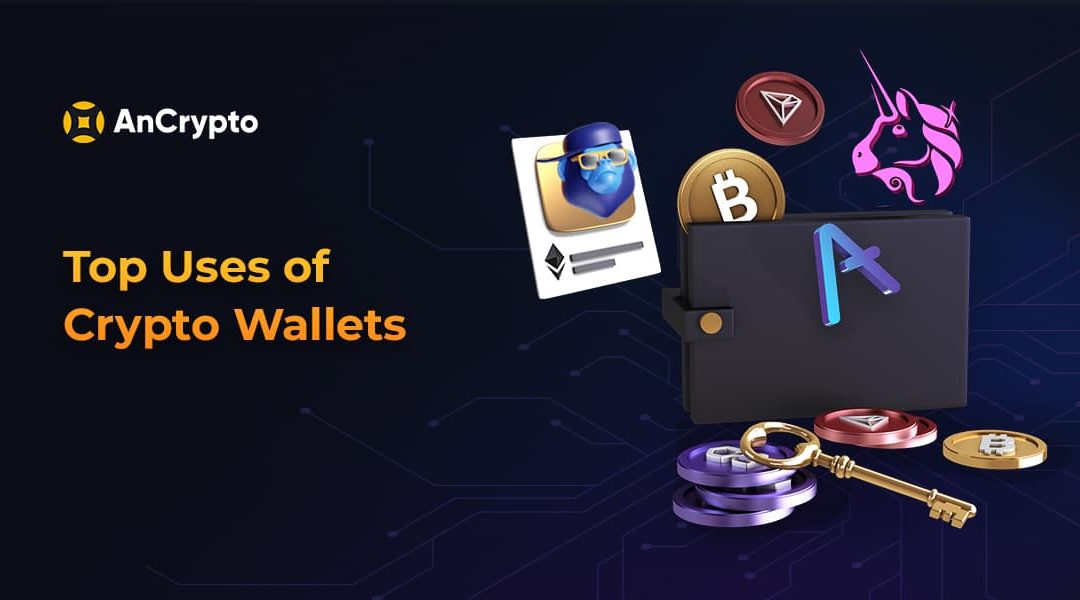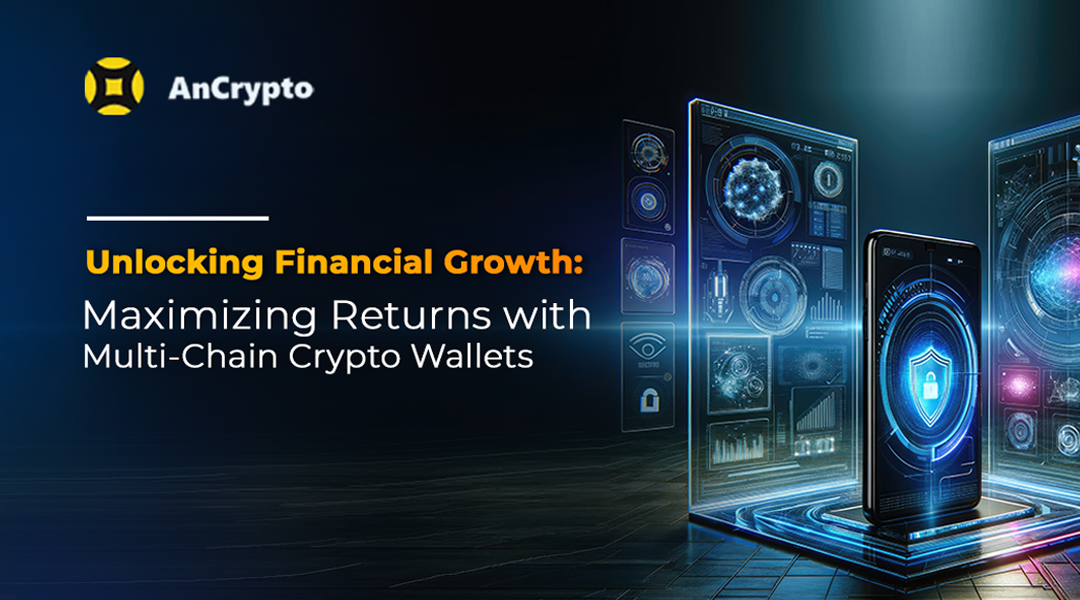The last few years have witnessed an increase in the number of crypto wallet users and their belief in the future of decentralized finance. Recent statistics reveal that there are more than 20,000 cryptocurrencies in usage and over 80 million crypto wallet users worldwide. This ratifies the fact that crypto wallets are more than a storage of public and private keys. Today, there are several ways to utilize a crypto wallet and if you still haven’t tapped into the vast potential and power of crypto wallets, go ahead and read about their top uses here:
1. Secure Access to Cryptocurrencies
Modern crypto wallets support several types of cryptocurrencies and also let you track your balance anytime. These wallets serve as a secure pathway for cryptocurrency storage. You can manage and access your balance and related information using your private key, which is stored in the wallet. While your assets actually exist on the blockchain, crypto wallets let you keep a check on your crypto holdings and monitor their equivalent value in different national currencies. Web3 wallets provide real-time information regarding conversion rates and the associated fluctuations in their values in fiat currencies. Depending upon the value of your crypto tokens, you can further make decisions to trade, swap, and make more investments.
Besides, crypto wallets have additional security features like two-factor authentication, backup and recovery options, etc.

2. Safe Storage of NFTs
NFT (Non-fungible token) is another booming area in the world of DeFi. Most of the Crypto wallets today support NFT storage and investment. These tokens are becoming a key component of the blockchain ecosystem. Blockchain technology enables the creation and validation of digital art and ownership for artists without the need for any third-party intermediary. You can buy, sell, and store NFTs while retaining a part of their ownership. To prevent theft of this digital asset, it is crucial to keep it safe and secure in crypto wallets, so it is accessible only by the private key.
NFTs are swiftly expanding to sectors like sports, games, fashion, and music.
3. Platform for Staking
Some of the crypto wallets let the cryptocurrency holders option stake a certain amount of their assets, in return for more tokens or similar rewards. It basically entails locking cryptocurrency holdings for a fixed time period just like you would keep your savings in a fixed bank account. This works through a proof-of-stake consensus mechanism, that facilitates new transactions and the addition of blocks in a blockchain.
Stakers generally provide large amounts of cryptocurrency as an insurance in return for validating fresh transactions. Crypto investors view this practice as a source of passive income and often support blockchain projects for enhanced efficiency and security of their operations. Popular crypto wallets generally extend a section of coins that are eligible for staking purposes.
4. Platform for Trading
Cryptocurrency trading is one of the main reasons behind the increased usage of crypto wallets. Trading implies operations like purchasing and selling cryptocurrencies, that are usually executed from crypto wallets. In order to be good at trading cryptocurrencies, you need to have a good understanding of the market, just like trading stocks. However, unlike the wide-ranging fluctuations and volatility in stock and share markets, the value of cryptocurrencies escalates over the long term, albeit with short-term bearish trends. The first cryptocurrency, Bitcoin continues to be the most preferred and valuable one, even after over a decade of its introduction. So, trading is another way to earn through crypto investments.
5. Platform for Crypto Lending
One of the commonly used DeFi services is crypto lending, which is available on crypto exchanges and similar platforms. In this, the investors deposit their crypto assets on a DeFi platform and these are lent to borrowers in return for interest payments. DeFi lending primarily involves loan and borrowing services that are supported by smart contracts. Such loans are immediately granted and enabled by Web3 wallets. With DeFi lending, you can begin earning interest right away, and this interest generally compounds every minute. As opposed to centralized platforms, the deposit of collateral in DeFi earns interest even when tied to a loan.
Moreover, with the latest decentralized wallets like AnCrypto, you can lend and request tokens conveniently through the ‘chat-and-pay’ option, which lets you utilize usernames in place of long wallet addresses.
6. Gateway to DApps
The latest crypto wallets provide a gateway to a range of DApps. These decentralized applications extend art, entertainment, gaming, social media, blockchain-based voting, and financial services in the Web3 space. DApps can also be added as plugins to deliver adverts, monitor user behavior, and ask for crypto donations. These are likely to demonstrate enormous potential in healthcare, education, real estate, and predictive markets. Crypto wallets are typically connected to DApps using a feature called ‘Wallet Connect’. Once you have connected your wallet to a particular DApp, it can send transaction requests directly to your wallet. Nevertheless, note that the wallet itself isn’t associated with any DApp, which is why the latter cannot access your private key.

Among the modern multi-chain crypto wallets, AnCrypto is one such wallet that offers a secure browser gateway to a host of DApps and lets you operate without switching out of the wallet.
Conclusion
Crypto wallet serves as a useful tool for both novice users as well as seasoned DeFi experts. As explained above, it is a secure place to store as well as trade crypto assets. Being a key contributor to a decentralized economy, this sort of wallet is an excellent way to safeguard access to digital money, which is present on blockchains instead of vulnerable centralized servers, computers, laptops, or smartphones. Non-custodial crypto wallets can be thought of as bank accounts, that are managed, operated, and authorized by users individually. So, whether you experience a loss or gain in your crypto assets, is solely determined by your actions. Yet, the growth and popularity of Web3 wallets are proof of the rising trust and credibility of crypto enthusiasts.





